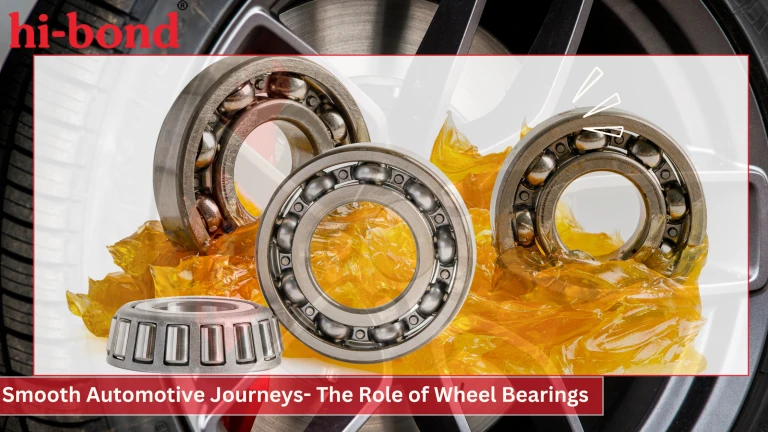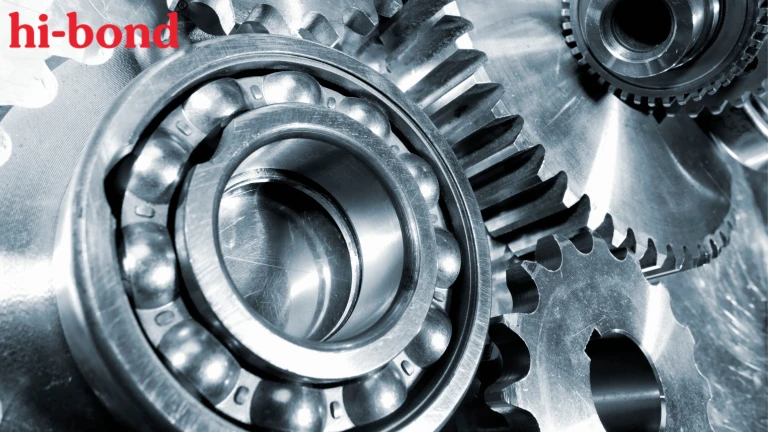
In the automotive engineering world, bearings play a pivotal role in running machines frictionless and smoother. Some vehicle parts might not catch our attention, yet they are crucial for a trouble-free and secure ride. Wheel bearings are one such example. These unassuming components silently carry the burden of the vehicle\'s weight and enable the wheels to spin smoothly. However, they often escape our notice until they malfunction, causing discomfort, posing safety risks, and potentially requiring expensive fixes.
Wheel bearings purchased from a reliable bearing manufacturer are indispensable for a seamless, safe, and secure journey. Functioning quietly, they bear the vehicle\'s load and facilitate effortless wheel rotation. However, their significance is frequently underestimated until they malfunction, leading to discomfort, safety concerns, and potentially heavy repair bills.
This Blog provides the significance of wheel bearings, their functioning, common issues, and maintenance practices to ensure uninterrupted automotive journeys.
Basic Understanding and Overview Of Wheel Bearings
Wheel Bearings are a crucial component in the machinery industry that is vital for the smooth rotation of vehicles. Wheel bearings are vital parts of a vehicle\'s wheel assembly and setup. Their primary job is to ensure the wheels turn smoothly while carrying the vehicle\'s weight. Usually, they come in sets of two: one component fitted inside the hub assembly and the other positioned within the wheel hub or drum. These bearings permit the wheels to spin without much resistance, which helps maintain the vehicle\'s efficiency and maneuverability.
Without wheel bearings, a vehicle\'s wheels would struggle to rotate smoothly, making driving bumpy and inefficient. Their presence in pairs within the wheel assembly ensures proper weight distribution and effortless wheel movement, enhancing overall vehicle performance and handling.
Functioning of the Wheel Bearings
Wheel bearings plays a crucial role in ensuring that the wheels turn smoothly by lessening resistance and holding up the vehicle\'s weight. They are made up of tough steel balls or rollers enclosed within a metal ring called a race. These rolling parts are kept apart by a lubricating substance, usually grease purchased from a reliable bearing manufacturing company, which helps reduce friction and prevent damage.
When a vehicle is in motion, wheel bearings face significant pressure and heat due to the vehicle\'s weight and movement. They must withstand these forces while maintaining minimal friction to avoid overheating and wearing out too quickly. Keeping the bearings well-lubricated is key to keeping them in good condition and performing at their best.
Different Types of Wheel Bearings
Wheel Bearings come in many different types based on their smooth application requirements that suit vehicle configurations and performance requirements.
Ball Bearings
These are the most common types of wheel bearings. They consist of steel balls housed within a metal ring. It provides low friction and smooth rotation, ideal for most standard vehicles.
Tapered Roller Bearings
Tapered roller bearings, which use tapered rollers arranged in cones, can handle radial and axial loads. They are commonly used in vehicles with heavier loads or towing trailers.
Double-Row Ball Bearings
As the name suggests, double-row ball bearings feature two rows of steel balls, providing increased load-bearing capacity compared to single-row ball bearings. They are often found in heavy-duty trucks and commercial vehicles.
Angular Contact Bearings
By angling the inner and outer races, these bearings can handle combined radial and axial loads. They are suitable for vehicles that experience high-speed cornering or uneven road surfaces.
Gen 3 Wheel Bearings
Modern vehicles with advanced electronic systems may utilize Generation 3 wheel bearings, which incorporate sensors for monitoring wheel speed and the functionality of ABS, an Anti-lock Braking System. These bearings are essential for modern vehicle safety and performance systems.
Each wheel bearing type offers specific advantages depending on the vehicle\'s design, load requirements, and performance needs. Proper wheel bearing selection and maintenance are essential for optimal vehicle performance and safety.
Signs of Bad Wheel Bearing Issues

Like other parts of a vehicle, wheel bearings can wear out or get damaged as time passes. It\'s important to spot the signs that they\'re starting to fail so that you can fix any problems before they become serious. Some primary things to watch out for that might mean your wheel bearings are having trouble include.
Unusual Noises
A clear indicator of a wheel bearing going bad is strange sounds coming from the wheels. These could be grinding, grumbling, or buzzing noises, especially when you speed up or slow down your vehicle. These sounds usually get louder as you go faster and might shift in tone when you make turns.
Vibration
When wheel bearings purchased from reliable bearing manufacturers are faulty, they can generate vibrations in the vehicle, particularly when driving at faster speeds. These vibrations can be sensed through the steering wheel, floor, or seat, signaling a lack of balance or proper alignment in the wheel setup. This imbalance or misalignment can lead to discomfort for the driver and passengers and affect the vehicle\'s stability and handling.
Uneven Tire Wear
When wheel bearings become worn out, they can result in irregular tire wear patterns, like excessive wearing on a single side of the tire or gathered near edges. This uneven wearing typically occurs due to misalignment resulting from the instability of the bearings. It\'s essential to address this issue promptly to prevent further damage to the tires and ensure safe driving conditions.
Looseness or Play in the Wheel
When you detect significant movement or looseness in the wheel when the vehicle is lifted or while driving, it might suggest a loose or impaired wheel bearing purchased from a bearing manufacturing company. This situation can undermine the vehicle\'s control and safety, highlighting the urgent need for prompt maintenance. Addressing this issue instantly is crucial to upholding safe driving standards and preventing potential accidents.
After learning about the bad wheel bearing issues, you find various tips on selecting wheel bearing suppliers for longer durability.
Importance of Wheel Bearing Maintenance
Proper maintenance of wheel bearings is crucial for ensuring they last long and perform well. Regular checks and preventive actions can catch problems early, saving money on expensive fixes later. Here are some maintenance suggestions to keep wheel bearings working at their best.
Routine Inspections
Incorporate regular wheel bearing inspections into your vehicle\'s routine maintenance plan. During tire rotations or anti-lock brake checks, examine the bearings for any indications of wear, damage, or leaks in lubrication. This proactive approach allows you to identify potential issues early on, preventing more significant problems and ensuring your vehicle\'s safety and reliability.
Lubrication
When lubricating wheel bearings, it\'s vital to use the right type of grease as the manufacturer recommends. Applying too much or too little grease can accelerate bearing failure, so follow the specified intervals closely. Proper lubrication keeps the bearings running smoothly, reducing friction and heat buildup, extending their lifespan and improving overall performance. By sticking to these maintenance practices, you can maximize the longevity and efficiency of your vehicle\'s wheel bearings.
Seal Integrity
Regularly check the seals and dust caps to ensure they are in good condition and not damaged. These components play a crucial role in keeping harmful particles out of the bearing assembly, which helps maintain its overall integrity and extends its lifespan.
Temperature Monitoring
Monitor for every unusual heat buildup in the wheel hubs, which could indicate problems such as bearing friction or insufficient lubrication. Addressing overheating instantly is essential to prevent potential damage to the bearings and maintain optimal performance.
Professional Maintenance
If you suspect any issues with your wheel bearings or notice any of the symptoms mentioned earlier, it\'s best to seek professional inspection and repair services from a reliable bearing manufacturing company.
Diagnosing or fixing wheel bearing problems without the necessary expertise can worsen the situation and pose safety hazards. Trusting qualified professionals ensures proper diagnosis and repair, safeguarding your vehicle and your safety on the road.
Gain Crucial Information Regarding The Effective Role Of Wheel Bearings
Wheel bearings, manufactured by a specialized bearing manufacturer, are small but indispensable for smooth vehicle journeys. They bear the weight of the vehicle and enable effortless wheel rotation, significantly impacting performance, handling, and safety. By grasping how wheel bearings operate, spotting indications of wear or damage, and adopting preventive maintenance practices, drivers can experience uninterrupted travel while reducing the likelihood of unforeseen breakdowns or safety concerns. In wheel bearings, staying alert and promptly maintaining them are vital for a comfortable journey along life\'s roads.


